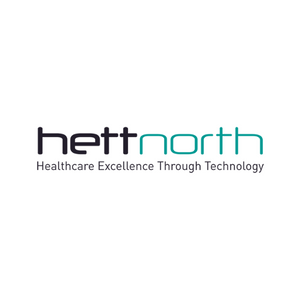In an era where technology is advancing at an unprecedented pace, the healthcare industry is not immune to the transformative power of digital innovation. As the United Kingdom grapples with the challenges posed by an aging population, rising healthcare costs, and the aftermath of global health crises, the demand for a more efficient and technologically adept healthcare system has never been more pressing. Central to this transformation is the cultivation and integration of digital skills within the healthcare workforce.
Digital skills in healthcare encompass a broad range of abilities that enable professionals to leverage technology for improved patient care, streamlined processes, and enhanced decision-making. From electronic health records (EHR) to telemedicine, these skills are instrumental in shaping the future of healthcare delivery in the UK.
Key Technologies that are Shaping the Need for Digital Skills Key in Healthcare
The Rise of Electronic Health Records (EHR)
One of the pivotal aspects of digital skills in healthcare is the adoption and effective utilisation of Electronic Health Records. In the UK, the NHS has been at the forefront of incorporating EHR systems to create a centralised and accessible repository of patient information. Digital skills play a crucial role in ensuring the seamless implementation and navigation of these systems.
EHRs not only enhance the accuracy and efficiency of patient care but also contribute to data-driven decision-making. Digital literacy is thus paramount for healthcare professionals to harness the full potential of EHRs, ensuring that patient records are not only secure but also easily accessible, promoting better collaboration among healthcare providers.
Telemedicine: Bridging Gaps in Access
The landscape of healthcare delivery has witnessed a paradigm shift with the advent of telemedicine. Particularly in the UK, where geographical disparities and the strain on traditional healthcare infrastructure are prevalent issues, digital skills are indispensable for the successful deployment of telehealth services.
Professionals equipped with digital skills can facilitate virtual consultations, monitor patients remotely, and ensure the continuity of care beyond the confines of a physical healthcare setting. The ability to navigate telemedicine platforms, interpret remote monitoring data, and engage with patients virtually is a testament to the evolving nature of healthcare delivery in the digital age.
Precision Medicine and Data Analytics
Another realm where digital skills play a pivotal role is in the domain of precision medicine and data analytics. The UK has been investing heavily in genomics and personalised medicine, making it imperative for healthcare professionals to be adept at utilising digital tools for analysing vast datasets.
Digital skills enable healthcare practitioners to interpret genomic information, identify personalised treatment options, and predict disease risks more accurately. Additionally, data analytics can be leveraged to identify trends, allocate resources efficiently, and enhance population health strategies. As the healthcare industry in the UK becomes increasingly data-driven, the demand for professionals with strong digital skills is set to rise.
Cybersecurity: Safeguarding Patient Information
With the growing digitisation of healthcare records and the prevalence of interconnected devices, the issue of cybersecurity becomes paramount. Digital skills extend beyond utilising technology for patient care and include the ability to safeguard sensitive information against cyber threats.
Healthcare professionals in the UK must be well-versed in cybersecurity practices to prevent data breaches and protect patient confidentiality. From understanding encryption protocols to recognising and mitigating potential vulnerabilities, digital skills in cybersecurity are an integral component of ensuring the trustworthiness of digital healthcare systems.
Bridging the Training Gap
While the importance of digital skills in healthcare is evident, there is a pressing need to bridge the training gap and ensure that the healthcare workforce is adequately prepared for the digital era. Continuous professional development programs, workshops, and certifications can empower healthcare professionals to acquire and enhance their digital skills.
Educational institutions and healthcare organisations must collaborate to integrate digital literacy into the curriculum and provide ongoing training opportunities. By fostering a culture of lifelong learning and adaptability, the UK healthcare system can proactively address the evolving technological landscape.
The Need for Digital Skills in Healthcare
The trajectory of healthcare in the United Kingdom is undeniably intertwined with the development and integration of digital skills. From navigating electronic health records to harnessing the potential of telemedicine and data analytics, healthcare professionals must be equipped with the tools necessary to thrive in the digital age.
As the UK continues to invest in digital health initiatives, prioritising the cultivation of digital skills becomes not only a necessity but a strategic imperative. By fostering a digitally proficient healthcare workforce, the UK can not only enhance the efficiency of healthcare delivery but also position itself at the forefront of global healthcare innovation. The journey towards a digitally empowered healthcare system is not just an evolution but a revolution that promises to redefine the future of healthcare in the United Kingdom.
Join us at HETT North on 28th February in Manchester to find out more about data in healthcare.
Register for your FREE pass now to enjoy:
- 40+ hours of CPD-accredited content across 6 content streams
- 100+ innovative suppliers
- 1-2-1 meeting opportunities with over 1,400 like-minded peers
- 100+ expert speakers including Jenny Chong, Masood Ahmed & Natasha Phillips
%20(1).png?width=500&height=58&name=HETT%20insights%20logo%20RGB-04%20(1)%20(1).png)


